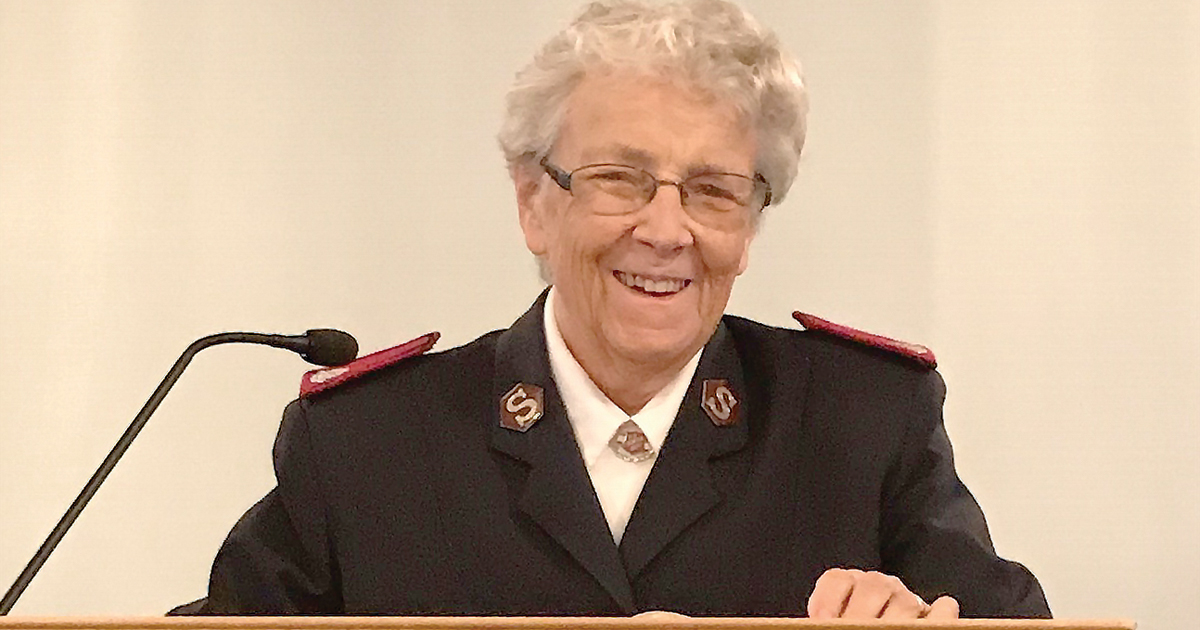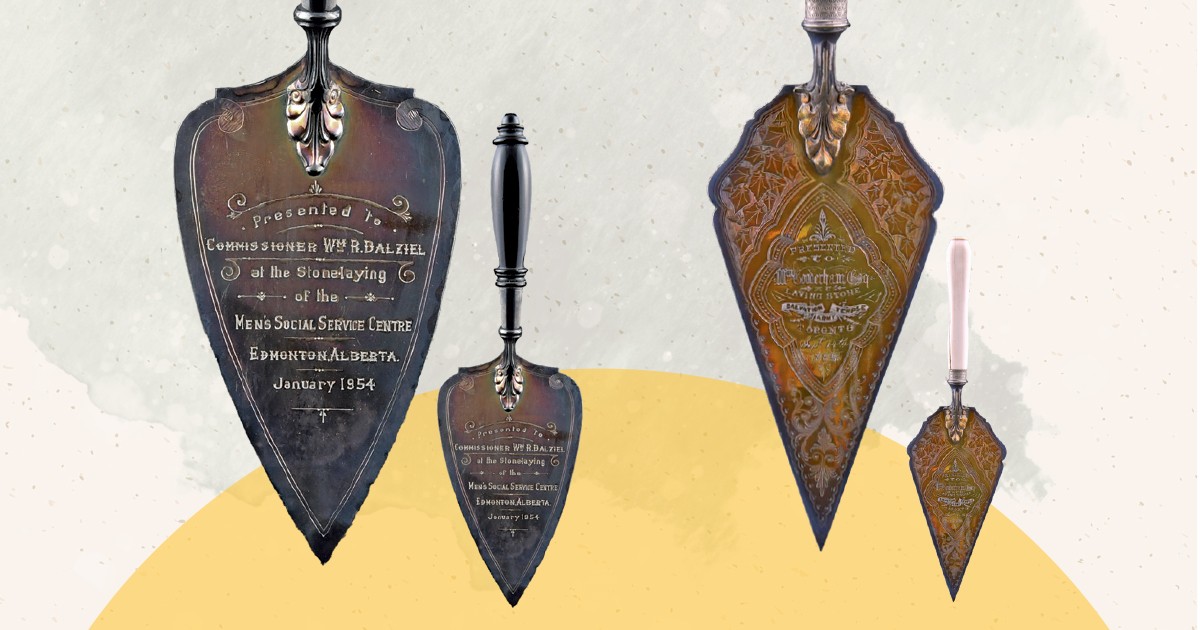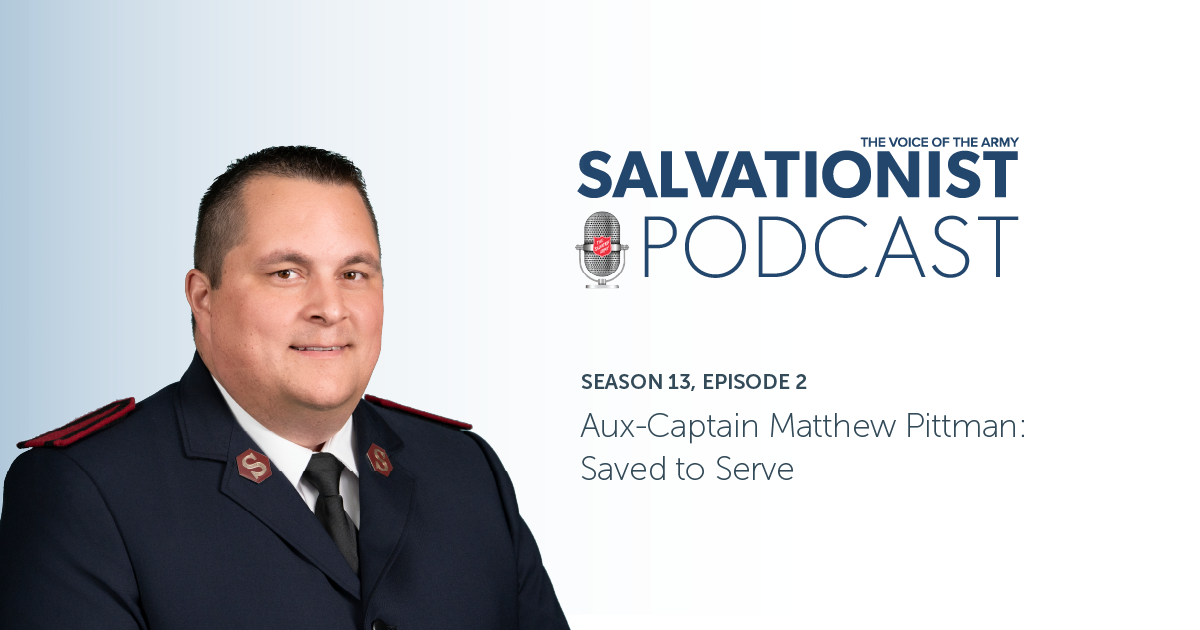To say that Major Lillian Pelley retired from “active service” as an officer in The Salvation Army in 2003 would not be entirely accurate. Yes, she did receive a certificate marking the official date of her retirement almost two decades after she was commissioned in 1985 as a cadet in the Guardians of the Truth Session from the College for Officer Training in St. John’s, N.L. However, she has been very actively and faithfully engaged in post-retirement service as a corps officer in the Newfoundland and Labrador Division for nearly 10 years. News editor Pamela Richardson asked Major Pelley to share her thoughts on the important role of the corps officer, why she continues to serve and some of her fondest memories of ministry.
When were you called to officership?
I recognized the call to officership as a young child, but like many young people, I placed it on hold until my later years.
This story is from:
When were you called to officership?
I recognized the call to officership as a young child, but like many young people, I placed it on hold until my later years.
Where have you served, both before and after retirement?
Early in my officership, I enjoyed three corps appointments in Newfoundland and Labrador, in Lower Lance Cove, Monkstown and Cottrell’s Cove. I also served in the finance department at territorial headquarters in Toronto, and at three social services centres, including London Children’s Village, Ont., Parkdale House in Sydney, N.S., and Evangeline Residence in Toronto.
This is my 10th year in postretirement service in corps appointments in Newfoundland and Labrador. I was in Little Heart’s Ease for two years, Robert’s Arm for one year, Charlottetown for six years, and I am presently in my first year in Englee.
Why continue to serve in retirement?
My motivation first came to me as I read my Officer’s Covenant at training college. It said: “I will love and serve God supremely all my days as a Salvation Army officer.” I recall struggling with that at the time, but when I did sign it, for me it was for life. I can’t imagine not being able to do what I am doing.
What has been your biggest joy as a corps officer?
Seeing someone accept Jesus into their life. Nothing on earth can give me more joy than that.
What has been the most difficult?
My biggest challenge, perhaps, has been keeping up with the changing technology within the Army.
Is there anything about the role of a corps officer that has gone by the wayside that you would like to see revived?
I always find a real ministry in home visitation with my people. You see, people will not stop on a Sunday morning as they leave church and tell you that they are having an issue with a family member or that something else is bothering them. However, when you sit down to a meal or a cup of tea with them, they feel they have the time and freedom to share what is on their mind. We don’t visit like we used to, and I feel that we are missing out when we don’t do it.
What is your fondest memory of ministry?
My fondest memories are of the friends I have made along the way, the victories won and the answered prayers. I do have one moment that stands out for me, when a woman experiencing homelessness in Toronto hugged me and told me that I had made an impact on her life. That is a memory I will never forget.
What advice would you give to newly commissioned officers as they begin their journey of ministry?
I would tell them to develop their prayer life, love their people and treat them all alike. Visit often and be an example to the flock to which they are sent.
Early in my officership, I enjoyed three corps appointments in Newfoundland and Labrador, in Lower Lance Cove, Monkstown and Cottrell’s Cove. I also served in the finance department at territorial headquarters in Toronto, and at three social services centres, including London Children’s Village, Ont., Parkdale House in Sydney, N.S., and Evangeline Residence in Toronto.
This is my 10th year in postretirement service in corps appointments in Newfoundland and Labrador. I was in Little Heart’s Ease for two years, Robert’s Arm for one year, Charlottetown for six years, and I am presently in my first year in Englee.
Why continue to serve in retirement?
My motivation first came to me as I read my Officer’s Covenant at training college. It said: “I will love and serve God supremely all my days as a Salvation Army officer.” I recall struggling with that at the time, but when I did sign it, for me it was for life. I can’t imagine not being able to do what I am doing.
What has been your biggest joy as a corps officer?
Seeing someone accept Jesus into their life. Nothing on earth can give me more joy than that.
What has been the most difficult?
My biggest challenge, perhaps, has been keeping up with the changing technology within the Army.
Is there anything about the role of a corps officer that has gone by the wayside that you would like to see revived?
I always find a real ministry in home visitation with my people. You see, people will not stop on a Sunday morning as they leave church and tell you that they are having an issue with a family member or that something else is bothering them. However, when you sit down to a meal or a cup of tea with them, they feel they have the time and freedom to share what is on their mind. We don’t visit like we used to, and I feel that we are missing out when we don’t do it.
What is your fondest memory of ministry?
My fondest memories are of the friends I have made along the way, the victories won and the answered prayers. I do have one moment that stands out for me, when a woman experiencing homelessness in Toronto hugged me and told me that I had made an impact on her life. That is a memory I will never forget.
What advice would you give to newly commissioned officers as they begin their journey of ministry?
I would tell them to develop their prayer life, love their people and treat them all alike. Visit often and be an example to the flock to which they are sent.
This story is from:










Leave a Comment